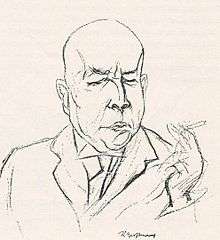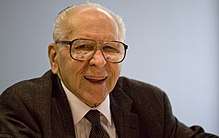
Psychology consists of describing states of the soul by displaying them all on the same plane, without any discrimination of value, as though good and evil were external to them, as though the effort toward the good could be absent at any moment from the thought of any man. ~ Simone Weil

Everything that our present-day psychologist has to tell us—and here we refer not only to the systematic science but also in the wider sense to the physiognomic knowledge of men—relates to the present condition of the Western soul, and not, as hitherto gratuitously assumed, to “the human soul” at large. ~ Oswald Spengler

The great shift … is the movement away from the value-laden languages of … the “humanities,” and toward the ostensibly value-neutral languages of the “sciences.” This attempt to escape from, or to deny, valuation is … especially important in psychology … and the so-called social sciences. Indeed, one could go so far as to say that the specialized languages of these disciplines serve virtually no other purpose than to conceal valuation behind an ostensibly scientific and therefore nonvaluational semantic screen. ~ Thomas Szasz

For it still seemed to me “that it is not we who sin, but some other nature sinned in us.” And it gratified my pride to be beyond blame, and when I did anything wrong not to have to confess that I had done wrong. … I loved to excuse my soul and to accuse something else inside me (I knew not what) but which was not I. But, assuredly, it was I, and it was my impiety that had divided me against myself. That sin then was all the more incurable because I did not deem myself a sinner. ~ Augustine
Psychology is an academic and applied discipline involving the scientific study of mental processes and behavior. Psychologists study such phenomena as perception, cognition, emotion, personality, behavior, and interpersonal relationships. Psychology also refers to the application of such knowledge to various spheres of human activity, including problems of individuals' daily lives and the treatment of mental health problems.
Quotes
A - F
- For it still seemed to me “that it is not we who sin, but some other nature sinned in us.” And it gratified my pride to be beyond blame, and when I did anything wrong not to have to confess that I had done wrong. … I loved to excuse my soul and to accuse something else inside me (I knew not what) but which was not I. But, assuredly, it was I, and it was my impiety that had divided me against myself. That sin then was all the more incurable because I did not deem myself a sinner.
- Augustine, Confessions, A. Outler, trans. (Dover: 2002), p. 77
- Modern psychology at its best has a questionable understanding of the soul. It has no place for the natural superiority of the philosophic life, and no understanding of education. So children who are impregnated with that psychology live in a sub-basement and have a long climb just to get back up to the cave, or the world of common sense, which is the proper beginning for their ascent toward wisdom. They do not have confidence in what they feel or what they see, and they have an ideology that provides not a reason but a rationalization for their timidity.
- Allan Bloom, The Closing of the American Mind (1987), p. 121
- Psychology appeared to be a jungle of confusing, conflicting, and arbitrary concepts. These pre-scientific theories doubtless contained insights which still surpass in refinement those depended upon by psychiatrists or psychologists today. But who knows, among the many brilliant ideas offered, which are the true ones? Some will claim that the statements of one theorist are correct, but others will favour the views of another. Then there is no objective way of sorting out the truth except through scientific research.
- Raymond Cattell (1965). The Scientific Analysis of Personality, Baltimore, MD: Penguin, p. 14.
- Unlike the physicist, the psychologist … investigates processes that belong to the same order — perception, learning, thinking — as those by which he conducts his investigation.
- Morris R. Cohen, Reason and Nature (1953), p. 81
- Psychology has a long past, but only a short history.
- Herman Ebbinghaus, cited in: Edwin Boring (1929) A History of Experimental Psychology p. ix
G - L
- Cancer has the biopsy, kidney disease has the urine test, and HIV has the cheek swab, yet diagnosis for mental illness is often nothing more than a survey or a conversation with a psychiatrist.
- Knaresboro, Tarah (3 May 2011). Read My Blood. Psychology Today.
- The Savage interrupted him. "But isn't it natural to feel there's a God?"
"You might as well ask if it's natural to do up one's trousers with zippers," said the Controller sarcastically. "You remind me of another of those old fellows called Bradley. He defined philosophy as the finding of bad reason for what one believes by instinct. As if one believed anything by instinct! One believes things because one has been conditioned to believe them. Finding bad reasons for what one believes for other bad reasons–that's philosophy. People believe in God because they've been conditioned to.
"But all the same," insisted the Savage, "it is natural to believe in God when you're alone–quite alone, in the night, thinking about death …"
"But people never are alone now," said Mustapha Mond. "We make them hate solitude; and we arrange their lives so that it's almost impossible for them ever to have it."
- [Modern psychology] appears as the sickly offspring of average common sense when it is taken as what it professes to be—a science of the inner life. The entire achievements of the so-called science in this respect is outweighed by a single page of Goethe’s or of Jean Paul’s psychology; and it is impossible to evade the bitter truth which Novalis already has summed up, when he says that so-called psychology is one of those idols which have usurped the place in the sanctuary where true images of the gods should stand.
- Ludwig Klages, The Science of Character, W. Johnston, trans., p. 16
- Truly, if you want to ascertain what love there is in you or in another person, then pay attention to how he relates himself to one who is dead. If one wishes to observe a person, it is very important for the sake of the observation that one, in seeing him in a relationship, look at him alone. When one actual person relates himself to another actual person, the result is two, the relationship is constituted, and the observation of the one person alone is made difficult. In other words, the second person covers over something of the first person; moreover, the second person can have so much influence that the first one appears different from what he is. Therefore a double accounting is necessary here; the observation must keep a special account of the influence the second person has on the person who is the object under observation through his personality, his characteristics, his virtues, and his defects. If you could manage to see someone shadowboxing in dead earnest, or if you could prevail upon a dancer to dance solo the dance he customarily dances with another, you would be able to observe his motions best, better than if he were boxing with another actual person or is he were dancing with another actual person. And if, in conversation with someone, you understand the art of making yourself no one, you get to know best what resides in this person.
- Soren Kierkegaard 1847 Works of Love, Hong 1995 p. 347
- Psychology is a very unsatisfactory science. Comparing the vast body of systematised and recognised facts in physics with those in psychology one will doubt the advisability of teaching the latter to anybody who does not intend to become a professional psychologist, one might even doubt the advisability of training professional psychologists. But when one considers the potential contribution which psychology can make to our understanding of the universe, one's attitude may be changed. Science becomes easily divorced from life. The mathematician needs an escape from the thin air of his abstractions, beautiful as they are; the physicist wants to revel in sounds that are soft, mellow, and melodious, that seem to reveal mysteries which are hidden under the curtain of waves and atoms and mathematical equations; and even the biologist likes to enjoy the antics of his dog on Sundays unhampered by his weekday conviction that in reality they - are but chains of machine-like reflexes
- Kurt Koffka. Principles of Gestalt Psychology, 1935; p. 22. (Chapter 1, online at marxists.org)
- Psychoanalysis provides truth in an infantile, that is, a schoolboy fashion: we learn from it, roughly and hurriedly, things that scandalize us and thereby command our attention. It sometimes happens, and such is the case here, that a simplification touching upon the truth, but cheaply, is of no more value than a lie. Once again we are shown the demon and the angel, the beast and the god locked in Manichean embrace, and once again man has been pronounced, by himself, not culpable.
- Stanisław Lem, His Master's Voice (1968), tr. Michael Kandel (1983), Preface
- One can ask two different kinds of questions with regard to the topics of study in psychology as well as in other sciences. One can ask for the phenomenal characteristics of psychological units or events, for example, how many kinds of feelings can be qualitatively differentiated from one another or which characteristics describe an experience of a voluntary act. Aside from this are the questions asking for the why, for the cause and the effect, for the conditional-genetic interrelations. For example, one can ask: Under which conditions has been a decision made and which are the specific psychological effects which follow this decision? The depiction of phenomenal characteristics is usually characterized as “description”, the depiction of causal relationships as “explanation.”
- Kurt Lewin (1927). "Gesetz und experiment in der Psychologie" [Law and experiment in psychology]. in: Symposion, Vol 1, p. 375-421. Transl. Kurt Kreppner
M - R
- Despite the burgeoning technologies in the field of "helping", on many levels psychotherapy is still a crapshoot. Some of the goal of training, I think, is to help students accept that fact. The work is part science, part art, and part luck. Learning to tolerate the anxiety inherent in that recipe is critical for any clinician.
- Martha Manning, in Undercurrents (1st edition ed.). HarperCollins. 1995. pp. p. 9
- But a person who calls himself a psychologist is in a peculiar position these days. Before he can write about the psychology of emotion, or intelligence, or, in fact, about the psychology of any human behaviour, he must define what he means by psychology. The introspectionistic psychologists, now considered unscientific, regarded any exposition as psychological which described its phenomena in subjective or introspective terms. Now the introspectionists are pushed into the background. In their place we find a great variety of teachers and researchers all naming their diverse methods and observations "psychology". We have, for instance, in the field of emotions, the physiologists the neurologists the physiological psychologists, the behaviorists, the endocrinologists, the mental-tester-statisticians, the psycho-analysts, and the psychiatrists. Each of these types of worker confesses himself to be a psychologist, and, moreover, each maintains that his are the only psychologically worth-while results. Psychology to-day, like Europe in the Middle Ages, is being fought over by feudal barons who have little in common save tacit acceptance of the rule that spoils shall be taken whenever and however possible.
- William Moulton Marston, The Emotions of Normal People, (1928), pp. 5-6.
- Stripped of its bizarre excesses, Cameron's experiments, building upon Donald O. Hebb's earlier breakthrough, laid the scientific foundation for the CIA's two-stage psychological torture method.
- Alfred W. McCoy, as quoted by Klein, N., "The Shock Doctrine", p. 41, Metropolitan Books, New York, 2007
- The practical basis of the medical profession rested on psychology. Everyone felt better when self-confident, expensive experts could be called in to handle a vital emergency. Doctors relieved others of the responsibility for deciding what to do. As such, their role was strictly comparable to that of the priesthood, whose ministrations to the soul relieved anxieties parallel to those relieved by medical ministrations to the body.
- The old distinctions among emotion, reason, and aesthetics are like the earth, air, and fire of an ancient alchemy. We will need much better concepts than these for a working psychic chemistry.
- We cannot describe how the mind is made without having good ways to describe complicated processes. Before computers, no languages were good for that. Piaget tried algebra and Freud tried diagrams; other psychologists used Markov Chains and matrices, but none came to much. Behaviorists, quite properly, had ceased to speak at all. Linguists flocked to formal syntax, and made progress for a time but reached a limit: transformational grammar shows the contents of the registers (so to speak), but has no way to describe what controls them. This makes it hard to say how surface speech relates to underlying designation and intent–a baby-and-bath-water situation. I prefer ideas from AI research because there we tend to seek procedural description first, which seems more appropriate for mental matters.
- Marvin Minsky, in "Music, Mind, and Meaning" (1981)
- The popular medical formulation of morality that goes back to Ariston of Chios, "virtue is the health of the soul," would have to be changed to become useful, at least to read: "your virtue is the health of your soul." For there is no health as such, and all attempts to define a thing that way have been wretched failures. Even the determination of what is healthy for your body depends on your goal, your horizon, your energies, your impulses, your errors, and above all on the ideals and phantasms of your soul. Thus there are innumerable healths of the body; and the more we allow the unique and incomparable to raise its head again, and the more we abjure the dogma of the "equality of men," the more must the concept of a normal health, along with a normal diet and the normal course of an illness, be abandoned by medical men. Only then would the time have come to reflect on the health and illness of the soul, and to find the peculiar virtue of each man in the health of his soul.
- Friedrich Nietzsche, The Gay Science, § 120 “Health of the Soul”
- A clinical psychologist quietly questions his patient and passively observes his behavior during many preliminary consultations. He then collects his notes and observations, concentrates his thought upon the entire case, and makes an analysis of the patient's mental difficulties and maladjustments of personality. The psychologist then begins to persuade the patient to change his course of action in accordance with professional advice. In the end, the psychologist removes the patient's emotional difficulties and effects a more normal and efficient organization of his personality, thereby improving his life and increasing his happiness.
In the behavior of the psychologist during the treatment of his patient, we see expressions of the four elementary emotions in their proper order:(1) compliance; (2) dominance; (3) inducement; (4) submission.
The psychologist begins by complying completely with the patient's existing state of personality and emotion (a method strongly advocated by Alfred Adler). The psychologist accepts the patient just as he is, and merely observes and records his condition. This behavior constitutes intellectual compliance.
Next, he analyzes and reconstructs the entire personality picture. He attempts to understand his patient's personality and to master its hidden difficulties and maladjustments. Here, he dominates intellectually by over coming the difficulties and resistance which blocked the complete conprehension of the patient's personality.
He then persuades his patient to behave in a new way, prescribed by the psychologist — a process which is clearly inducement.
Finally, the psychologist, by means of inducement, re moves the patient's personality difficulties and serves the patient as he most wants to be served. This ultimate action expresses the submission, which is the psychologist's final purpose in undertaking the case.- Walter B. Pitkin and William M. Marston, “The Art of Sound Pictures” D. Appleton and Company, New York London (1930), Chapter VII FEELINGS AND EMOTIONS, pp. 147-148
- Western psychologists accuse religion of repressing the vital energy of man and rendering his life quite miserable as a result of the sense of guilt which especially obsesses the religious people and makes them imagine that all their actions are sinful and can only be expiated through abstention from enjoying the pleasures of life. Those psychologists add that Europe lived in the darkness of ignorance as long as it adhered to its religion but once it freed itself from the fetters of religion, its emotions were liberated and accordingly it achieved wonders in the field of production.
- Muhammad Qutb, Islam and Sexual Repression, chapter 4
- It is a principle of modern psychology that the feelings most apt to influence behavior are those that we try hardest to suppress. They work like malicious secret agents in the shadowed corners of the psyche. The basic strategy of every school of psychology is therefore to recover the repressed, to shine the light of awareness upon all that is hidden so that its influence can be assessed and allowed for. This amounts to saying that honesty—a clear declaration of one's tastes, preferences, vested interests, and emotional involvement—may be more important than objecitivity, if by objectivity one means affecting a blank and neutral state. In the latter sense objectivity may be a pretense that hides profound distortions.
- Theodore Roszak, The Gendered Atom (1999)
- One of the symptoms of an approaching nervous breakdown is the belief that one’s work is terribly important.
- Bertrand Russell in: The Conquest of Happiness, Routledge, 12 October 2012, p. 48
S - Z
- Economists have never allowed their analysis to be influenced by psychologists of their time, but have always framed for themselves such assumptions about psychical processes as they have thought it desirable to make.
- Joseph Schumpeter, History of Economic Analysis, 1945. p. 27
- Everything that our present-day psychologist has to tell us—and here we refer not only to the systematic science but also in the wider sense to the physiognomic knowledge of men—relates to the present condition of the Western soul, and not, as hitherto gratuitously assumed, to “the human soul” at large.
- Oswald Spengler, Decline of the West, C. Atkinson, trans., Volume 1, p. 303
- The great shift … is the movement away from the value-laden languages of … the “humanities,” and toward the ostensibly value-neutral languages of the “sciences.” This attempt to escape from, or to deny, valuation is … especially important in psychology … and the so-called social sciences. Indeed, one could go so far as to say that the specialized languages of these disciplines serve virtually no other purpose than to conceal valuation behind an ostensibly scientific and therefore nonvaluational semantic screen.
- Thomas Szasz, Anti-Freud (1990), p. 44
- Psychology consists of describing states of the soul by displaying them all on the same plane, without any discrimination of value, as though good and evil were external to them, as though the effort toward the good could be absent at any moment from the thought of any man.
- Simone Weil, “The responsibility of writers,” On Science, Necessity, and the Love of God, R. Rees, trans. (1968), p. 168
- In the specialist culture of our bureaucratic-industrial age, the reliance on experts to interpret and evaluate inner life is in itself the most malignant and invasive reach of division of labor.
- John Zerzan, Future Primitive Revisited (2012), p. 43
See also
External links
This article is issued from
Wikiquote.
The text is licensed under Creative
Commons - Attribution - Sharealike.
Additional terms may apply for the media files.